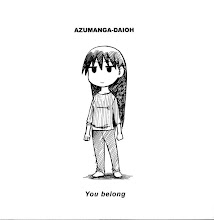The story for Eden of the East concludes with two theatrical releases, The King of Eden, which came out in 2009 and Paradise Lost, which came out in 2010. If you are unfamiliar with Eden of the East and have not seen the TV series do not read this review, it contains spoilers and will leave you a bit confused.
The King of Eden picks up six months after the final episode of the TV show. Taki foiled the other Selecao's attempts at more missile strikes with the help of the 20,000 NEETs and Eden of the East. Before disappearing he requested Juiz to make him the king of Japan. Saki has now flown to America to try and track him down. When she finally finds him she discovers that his memory has been erased again. The remaining Selecao are moving to end the game and Taki is now supposed to be the currently deceased Prime Ministers illegitimate child. The members of Eden of the East must use every trick they know to try and help Taki figure out who he really is and to survive the game.
Paradise Lost picks up right after The King of Eden. Taki has returned to Japan to meet with the widow of his supposed father to find out if he really is his illegitimate heir. His identity as the terrorist responsible for Careless Monday has become a hot topic and poses a risk to his attempt at becoming the king of Japan. Selecao One has stepped up the end game and threatens the remaining Selecao's ability to play the game by targeting the systems that control Juiz. What will the end of the game really mean for everyone involved and will the future of Japan really be a better one?
The movies feel just like the TV series. The common thread in the story for the movies may have been too disjointed if done as additional episodes in the series instead. The story is wrapped up and almost all of the loose threads are accounted for. It continues with the themes from the TV show; do the youth of Japan have a chance to have a successful and fulfilling future, can one person really make that big of a difference in the world around them? As with the TV series the character designs, particularly for the female characters, bugged me. The annoyance was due to the realism found with everything else in the show. At times the show and movies becomes humorous and silly, with comical character reactions to certain situations. Honestly, this isn't a bad thing, but does detract a bit. It is welcomed that humor shows up from time to time to keep it from being incredibly dry. The idea of glorifying the NEETs and hikikomori is annoying. I don't like the idea of glorifying self centered egotistical shut ins. With the themes of the current social issues Japan is facing being a central focal point of the show it makes an interesting case for NEETs and their viability for the future of their country. Only time will tell what course Japan will take in reality. Also, wait for a small segment at the end of the credits for Paradise Lost to wrap everything up nice and neat.
As with the TV series, both movies are licensed by FUNimation and are widely available.
2013-12-04
Subscribe to:
Post Comments (Atom)







No comments:
Post a Comment